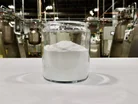Ascend Elements' Lithium Recovery Tackles Scope 3 Emissions

Ascend Elements, operating in sustainable battery materials, is poised to launch a groundbreaking lithium recovery line at its Covington, Georgia, facility by 2025. The innovation will produce 3,000 metric tons of recycled lithium carbonate (Li2CO3) annually, advancing sustainability in the battery supply chain and addressing key Scope 3 emission categories.
Tackling Scope 3 emissions across the supply chain
- Category 1 | Purchased Goods and Services: By producing sustainable Li2CO3, Ascend Elements reduces reliance on virgin materials and cuts emissions from raw material extraction and processing.
- Category 5 | Waste Generated in Operations: Recycling used lithium-ion batteries reduces waste while avoiding emissions from traditional disposal methods.
- Category 8 | Upstream Transportation and Distribution: Domestic production significantly minimises emissions associated with importing lithium carbonate.
- Category 11 | Use of Sold Products: The recycled Li2CO3 will be integral to advanced batteries for EVs and energy storage, helping to cut emissions during their operational life.
- Category 12 | End-of-Life Treatment of Sold Products: The company's closed-loop recycling solutions address emissions related to battery disposal, creating a more sustainable lifecycle for battery materials.
Lower emissions, higher impact
Ascend Elements' innovative lithium recovery process offers dramatic carbon savings compared to conventional methods like spodumene mining and brine extraction.
Eric Gratz, co-founder and Chief Technology Officer of Ascend Elements, stated:
"Our current lithium extraction process from used lithium-ion batteries is about 86% less carbon-intensive than spodumene mining and 37% less carbon-intensive than Chilean brine extraction."
The company's Hydro-to-Cathode technology is a key driver of this efficiency, emitting just 2.27 kg of CO2 per kilogram of Li2CO3 produced. In contrast, spodumene mining generates 16.7 kg and Chilean brine extraction 3.6 kg, respectively, for the same output.
Supporting a circular economy
The Covington facility, operational since August 2022, exemplifies Ascend Elements' commitment to a circular economy. It can recycle up to 30,000 metric tons of lithium-ion battery materials annually—equivalent to 70,000 EV battery packs—and plays a pivotal role in reducing waste and reusing valuable materials.
"This new domestic supply of a critical battery material will help U.S. industries meet growing demand while avoiding the possibility of tariffs on imported materials," said Eric.
Boosting economic and environmental benefits
The introduction of the lithium recovery line strengthens US supply chains for battery materials while lowering the environmental impact of production.
By reducing reliance on imported lithium carbonate, Ascend Elements helps to minimise transportation emissions and bolsters the nation's battery manufacturing ecosystem.
Ascend Elements' solutions enable EV manufacturers and other battery-dependent industries to lower their Scope 3 emissions and meet ambitious climate goals.
A greener path for battery materials
With its innovative lithium recovery line, Ascend Elements is shaping a more sustainable future for the battery industry. By addressing key environmental challenges and enabling a circular approach to lithium-ion battery materials, the company is setting a benchmark for sustainability and innovation in energy storage.
Gratz concluded: "Our efforts aren't just about recycling—fundamentally changing how battery materials are sourced and used, creating a cleaner, more efficient path forward."
Make sure you check out the latest industry news and insights at Scope 3 Magazine and be part of the conversation at our global conference series, Sustainability LIVE and Procurement & Supply Chain LIVE.
Discover all our upcoming events and secure your tickets today. Subscribe to the Scope 3 Magazine newsletter.
Scope 3 Magazine is a BizClik brand.
- Hindalco Scope 3 Strategy: Sustainable ManufacturingCircular Economy
- First Student's Electric Buses: A Scope 3 RevolutionScope 1 2 and 3
- Evia Aero and Britten-Norman Address Scope 3 EmissionsTransportation & Logistics
- Global Scope 3 Emissions: A Corporate Sustainability ShiftScope 1 2 and 3

